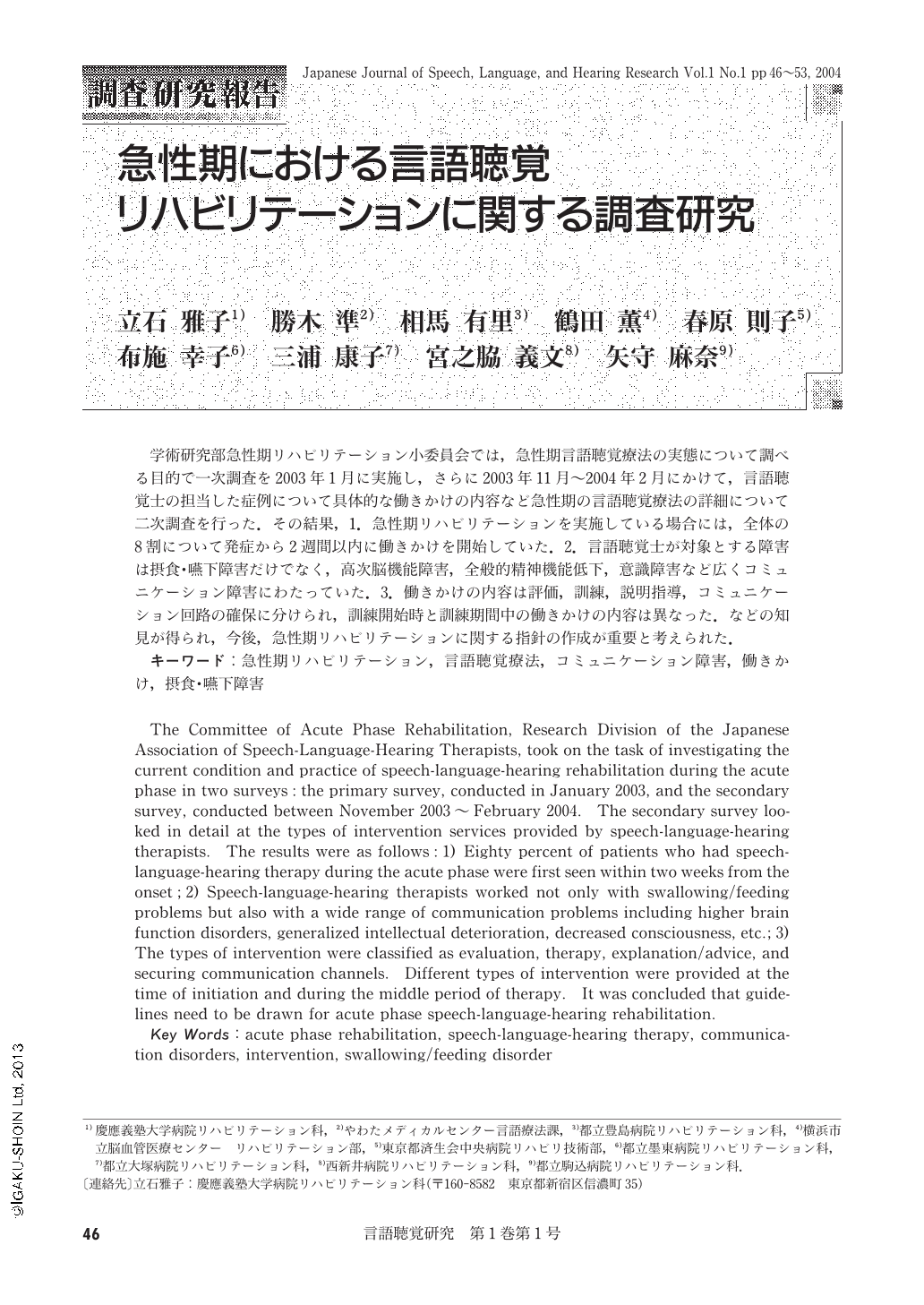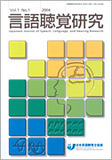- 有料閲覧
- 文献概要
- 1ページ目
- 参考文献
- サイト内被引用
学術研究部急性期リハビリテーション小委員会では,急性期言語聴覚療法の実態について調べる目的で一次調査を2003年1月に実施し,さらに2003年11月~2004年2月にかけて,言語聴覚士の担当した症例について具体的な働きかけの内容など急性期の言語聴覚療法の詳細について二次調査を行った.その結果,1.急性期リハビリテーションを実施している場合には,全体の8割について発症から2週間以内に働きかけを開始していた.2.言語聴覚士が対象とする障害は摂食・嚥下障害だけでなく,高次脳機能障害,全般的精神機能低下,意識障害など広くコミュニケーション障害にわたっていた.3.働きかけの内容は評価,訓練,説明指導,コミュニケーション回路の確保に分けられ,訓練開始時と訓練期間中の働きかけの内容は異なった.などの知見が得られ,今後,急性期リハビリテーションに関する指針の作成が重要と考えられた.
The Committee of Acute Phase Rehabilitation, Research Division of the Japanese Association of Speech-Language-Hearing Therapists, took on the task of investigating the current condition and practice of speech-language-hearing rehabilitation during the acute phase in two surveys:the primary survey, conducted in January 2003, and the secondary survey, conducted between November 2003~February 2004. The secondary survey looked in detail at the types of intervention services provided by speech-language-hearing therapists. The results were as follows:1) Eighty percent of patients who had speech-language-hearing therapy during the acute phase were first seen within two weeks from the onset;2) Speech-language-hearing therapists worked not only with swallowing/feeding problems but also with a wide range of communication problems including higher brain function disorders, generalized intellectual deterioration, decreased consciousness, etc.;3) The types of intervention were classified as evaluation, therapy, explanation/advice, and securing communication channels. Different types of intervention were provided at the time of initiation and during the middle period of therapy. It was concluded that guidelines need to be drawn for acute phase speech-language-hearing rehabilitation.

Copyright © 2004, Japanese Association of Speech-Language-Hearing Therapists. All rights reserved.


